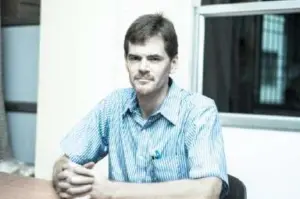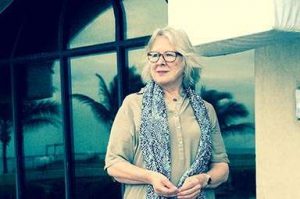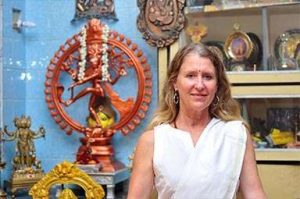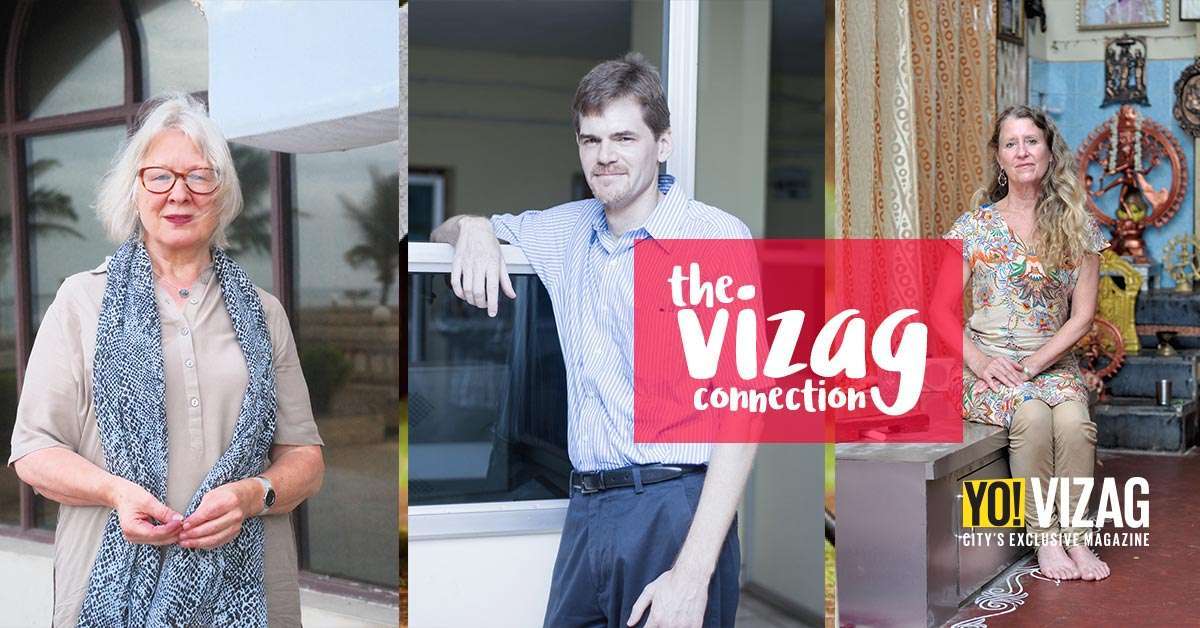Different people from different countries found something so enticing about the city that they decided to visit. But it didn’t stop there. They kept returning, for they had formed a bond with the city at a much deeper level. Jaya Siva Murty brings you the story of their Vizag connection.
Have you ever been the foreigner in another’s land? Do you still remember what it felt to visit a new country, experience that new culture, greet in a new language? How easy or difficult was it to shop, eat, meet, and live? And were you comforted when you came back home, to the familiar smell of your city, your family, your people?
Living in another country promises excitement of the new along with challenges of the unknown. Though being alienated in a new place is tough, it can also turn out to be a rewarding experience. And that, this month, is the crux of our story.
Meet Anne, Roxanne and Peter, three people from different countries and professions who came together with one similarity. A common bond tying them to Visakhapatnam. And when we went and met them, we felt that for all they knew perhaps they were more ‘Indian’ than many of us, more so because day in and day out, they choose to give us a huge part of not only their time and effort, but also their soul.
Peter Schneeberger
IT Expert, Executive Director of Samudra Software

Peter is from Columbia, Missouri, and has been in Vizag since the 1990s. Having come here as an exchange student to Andhra University, and having returned often on work-trips, till date he isn’t really sure as to why he made the choice. ‘It all happened on its own, I guess’ he says. And though he was here to study, it wasn’t just going to stop at that.
Being a part of the city for over two decades now, he fondly remembers how it has changed from then to now. ‘Back then there were no phones and I had to walk quite some distance if I wanted to call my family in the US. I used to call them only once a month and wrote a lot of letters.’ But that has changed now. Today the telecom industry has seen such a boom that now even school students own a personal phone.
The automobile industry has grown too. ‘Back then in the 1990s we would go to Hotel Apsara (now Green Park) for dinner at 9:00 PM, which was considered so late that by the time we finished there wouldn’t be any public transport to bring us back to Chinna Waltair, where we stayed. We’d have to walk down to come home. And today, it’s quite the opposite.’
But was life difficult when he had come here and has it become any easier now? ‘Yes, definitely there were challenges, in fact many of them’, he says, shrugging them off as a part of the process called life. He remembers one of them being the compulsory course of ‘Diploma in Telugu language’ that people from other countries had to take up. While he was studying in AU, he along with 6 other students thus had to take up the course, and that was definitely an experience.
‘Cultural adjustment is an ongoing process for me’
So how difficult was the cultural adjustment? ‘Well, that’s an ongoing process for me. Things that I still feel may change are the gender relations. For example, in our company meetings, women go to one side of the room and men to the other. No one tells them to do so, but inevitably it happens. And I find that interesting.’
But does he need to speak Telugu at all, given that English is commonly spoken and he said, ‘Matladatanu’ in an accent that only the most conversant in Telugu can use today. He added laughing, that yes, everyone who would hear him speak it the first time would be definitely surprised, but for people who know him, it’s an accepted part of his persona.
Peter is into many activities today. Having been the Past President of VITA (Visakhapatnam IT Association), he is the Executive Director of Samudra Software, Director of Surya Shakti India Financial and also an active member of the JCI, Rotary and Toastmasters club. His organisation regularly donates to charities, but the causes perhaps closest to heart are PAPA home and Akshayapatra.
When asked about Indian culture and people, he says he finds Vizag’s people warm and open, family-focused and the culture rich. His only rue is that the city doesn’t have much in terms of entertainment options, and that would be something he’d like to see change over the years.
A man who lives for today, he says he doesn’t know where his future may lead him. ‘I’m single now. I may marry and be here or somewhere else’ he says, ‘but Vizag city will always be special to me’.
Anne Legeland
Retired Attorney and Director of Friends Indeed

What could inspire a person living in the Netherlands, to leave a settled life and take on challenges on foreign soil? As a retired attorney and judge, Anne Legeland had many options before her. She could have stayed where she was, spending time with family and hobbies. But she decided otherwise. And taking on the new challenge of helping people in need, she came to India, to a remote village near Visakhapatnam, called Poosapatirega.
This journey for Anne began in 2001, when as a co-founder and Director of a Dutch NGO called Friends indeed, she helped identify groups of people that needed help and bridged them to those who provided it in Hyderabad. In 2004, she came down to the area north of Visakhapatnam, and started work there.
In very remote fisher villages, where once even the basic facilities were missing, she along with Friends Indeed started to construct 12 schools and handed them over to the government. This was followed by many other programs.
But the most Impressive was ‘Campus Challenge’ a regional facility for children and youth with disability. 120 children stay together in small groups on the campus, with each group being assigned under a caretaker with the role and responsibilities of a real-life ‘mother’. 60 youth also live there, getting a vocational training and hopefully a job. And an outreach team takes care of about 1000 children, living in 300 villages.
With the local partnership of Association Saikorian, and as a Director of Friends Indeed, her role is now to bring the programs a step further. Also she brings her skills as a former attorney who specializes in labour law, administrative law and equal treatment. This makes her equally busy when she’s back in the Netherlands or visiting India for six weeks during the months of February and October. When in India, she lives in Visakhapatnam, where she enjoys waking up to the scenic beauty of the beach every morning.
Ask her what is it that is satisfying about her job, and she replies: ‘The often major changes that we see in the children!’ She remembers, ‘There is a mentally challenged girl who had been living in seclusion for nine years. Her parents were labourers and had no choice but to lock her at home before going out for work. When she was brought to us, she had no concept of social living like being in a group, going to school, sharing etc. Today she is a changed lovely lively smiling girl, and it is so nice to know that we had a role to play in bringing that change about.’
What comes across strongly on talking to her is her quiet confidence, warmth and the fact that she doesn’t make tall claims. So when we talk about success stories, for Anne every individual or child educated, helped or supported in any way in order to improve his or her quality of life, is a success story. ‘We are still working towards our goals. Our latest endeavour is to help children at campus speak and understand English.’ And as a means to this end, Friends Indeed has come up with solar computers with innovative English software and an interactive environment through which absolutely any child can learn English.
And what does the future have in store.? Anne smiles as she replies, ‘Definitely more work on education and healthcare on a much bigger scale with these children and in the surrounding villages.’ We definitely wish her all the best.
Roxanne Kamayani Gupta
Dancer, Environmentalist, Renaissance woman

There are no facts, only interpretations. So when one assumes Roxanne Kamayani Gupta to be only a Kuchipudi dancer, who had come from the US charmed by India, one realizes how that is just the tip of the proverbial iceberg, for beneath that lies a person passionate about Kuchipudi, Hinduism, karma, yoga, teaching, health and environment.
‘Kuchipudi is a dance form that embodies the soul’ and was precisely the reason why Roxanne, an American from the Finger Lakes region of Central New York, was attracted to it, years ago in the 1970s after attending a classical dance program at her college. ‘Call it karma or the effect of my last life’ she says, it led her first to Hyderabad, then Chennai and eventually to Vizag, which she now calls her second home. A retired professor, ‘I travel between Ithaca and Vizag and come here once a year. When in the city, I practice dance and attend the various cultural programs.’
‘Kuchipudi is an integral part of me and I owe everything to my guru Bala Kondala at Kuchipudi Kalaa Kendram who is dedicated to the art form. Also for me it is about connecting the mind, body and soul rather than a means to earn money or fame.” Defining herself to be a renaissance woman she says, ‘Dance is just one extension of me. I’ve done my PhD in religious studies, am also an environmentalist and am particularly interested in the environment within each of us’, which has led her to explore yoga and dance for a deeper understanding of Indian art and culture. She is the author of the book “A Yoga of Indian Classical Dance: The Yogini’s Mirror” (Inner Traditions, 2000)
Hinduism and mythology always held a charm for Roxanne, who feels that the essence of those stories is relevant even today. ‘Take the story of Adishakti killing Mahishasura. It’s not about whether the story actually happened or not. For me that’s irrelevant. What is relevant is that who is the demon of today, who is the devi and most importantly, who is winning?’ she questions with passion.
‘Our environment is plagued by many issues, often driven by capitalism, the idea to become rich and greed. This fuels the devil inside us’ she says, adding how one can recharge their goodness to change the equilibrium of the universe. Her future plans thus don’t center on money-making, but rather a plan to start a non-profit organisation that promotes surya namaskars for world peace (www.suryanamaskarforworldpeace.org)
Ask her about Vizag and she remembers that she first saw the city from Kuchipudi Kalakshetram and remembers swimming at the beach there. ‘It used to be very clean then, but now pollution is on the rise’, an issue that troubles her deeply. She enjoys shopping at CMR central, attending cultural shows or visiting Lebenshilfe School for Handicapped Children.
She talks about the pseudo-westernization of India as an inevitable by-product of capitalism adding that cultures across the world are often made to feel inferior all the time. But she hopes that we will be out of the loop soon and realize the treasures that we have been carrying all along.
Note : Published on print - Sep'2014. This article is a repost.










Discussion about this post